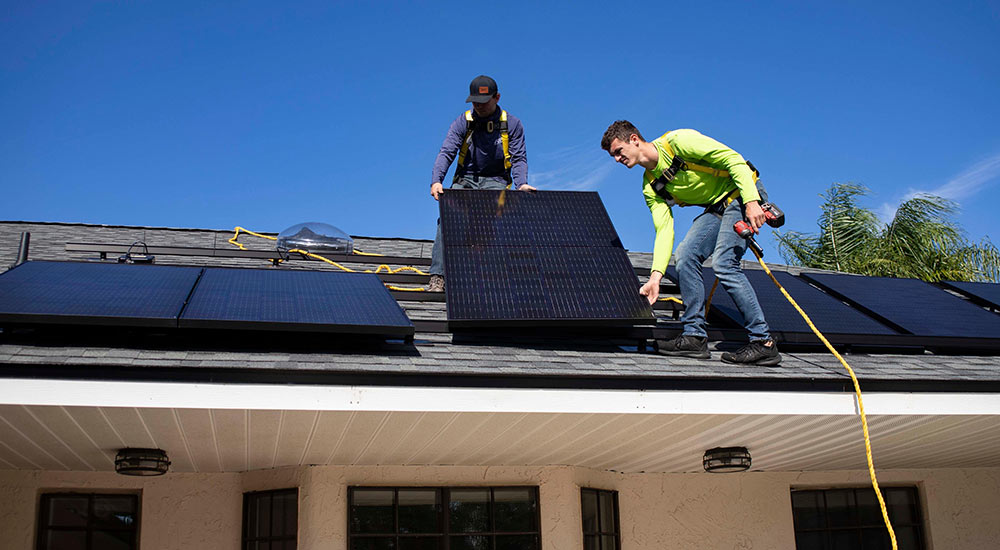Benefits of Solar Panels

Solar panels are becoming an increasingly common add-on to buildings and other structures. In fact, Google says searches for the alternative energy source have grown 50% year over year. But what are they exactly, how do they work and what are the benefits of solar panels?
What is Solar Energy?
Simply put, solar energy (or solar power) uses devices to convert light from the sun into useable energy. These days, when we think of solar energy our minds go straight to the large solar panels many people have installed on their roofs – but did you know solar technology has been in the works for over 100 years?
It’s true! Over time, solar energy has evolved from equipment used to power steam engines to the calculators we use in classrooms, and now in solar panels that help people around the world save energy, reduce their expenses and rely less heavily on traditional power sources.
Here’s a closer look at the benefits of solar panels:
- Energy Savings: Data from the U.S. Energy Information Administration shows that residential solar panels can produce as much as 850 kilowatt-hours (kWh) of energy. For many people, adding solar panels is a great way to save energy and reduce your carbon footprint, helping to create a healthier planet and cleaner atmosphere.
- Cost Savings: With all those potential energy savings, it’s no wonder solar panels have developed a reputation as an effective cost-savings tool.
- Tax Credit for Solar Panels: According to the U.S. Department of Energy, there are two tax credits available for businesses and other entities like nonprofits that purchase solar energy systems. Make sure you talk to a tax advisor and your insurance agent to fully understand the benefits and insurance implications.
How Do Solar Panels Work?
There are two types of solar technology, but the one you’ll be most familiar with is photovoltaic technology (PV) – the solar panels commonly seen on residences or small businesses. PV solar panels are made up of individual cells that, when placed in the sun, absorb photons from sunlight, create an electric field across the panel and become a reliable alternative energy source for you.
Concentrating solar-thermal power, on the other hand, uses mirrors to reflect sunlight and direct it on to receivers. The receivers collect the energy and convert it to heat, which can then be used as electricity. This type of solar energy is more common for large businesses and power plants.
While solar panels are effective in nearly every climate, some structures are not built to support solar energy systems. When researching solar energy, you’ll need to take the following factors into account:
- The size, shape and slope of a roof, which can make it or break it when fitting a structure for the appropriate number of panels
- The age of a structures roof, which should be less than 10 years old when you begin solar panel installation to ensure you get the most life out of your setup
- Tree coverage, which can block light from reaching solar panels
When you contact a solar energy company, they will send a team of professionals out to determine if your structure is right for solar panels, break down everything you’ll need to get started, and walk you through the process.
What Insurance Companies Cover Solar Panels?
Because solar panels are covered by most business insurance policies, you should be able to work with any major insurance carrier. Find an independent agent today to talk about your coverage options.
*Originally published on October 25, 2022
